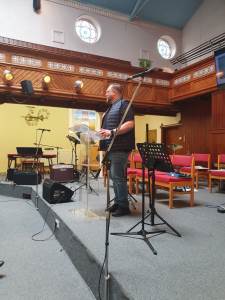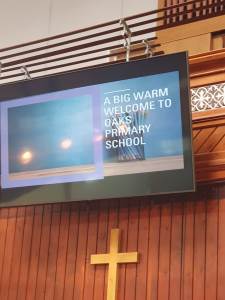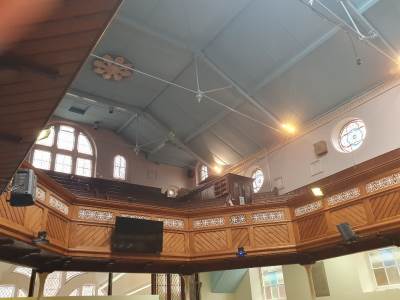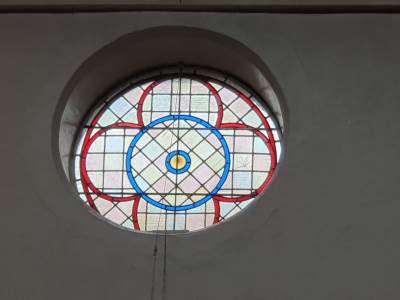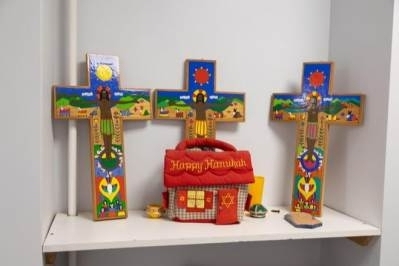RE
Intent
Religious education (RE) at The Oaks aims to give the children the opportunity to explore big questions about life, in order to find out what people believe, and what difference this makes to how they live and what they consider important. Children then reflect on their own ideas or beliefs and gain knowledge about our different world religions.
Within this framework we teach the children to value and respect the beliefs and opinions of others as well as giving them a positive space to articulate their own.
This agreed syllabus requires that all pupils study Christianity in each key stage. In addition, across their time in Primary school, pupils will study the principal religions represented in the UK, in line with the law. At The Oaks we cover Christianity, Islam and Judaism.
Implementation
- In the Early Years Foundation Stage (EYFS), Religious Education is integrated through the "Understanding the World" and "Personal, Social and Emotional Development" strands, fostering curiosity, exploration, and respect for diverse beliefs and practices. This approach allows children to explore the world of religion and belief in a natural and engaging way.
Learning Experiences:
- Children encounter religions and worldviews through special people, books, times, places, and objects.
- They listen to and talk about stories, and are introduced to subject-specific words.
- They use all their senses to explore beliefs, practices, and forms of expression.
- They are encouraged to ask questions, reflect on their own feelings, and use their imagination.
In KS1 we follow the Kent Agreed Syllabus for Religious Education 2022-2027. Our long term plan aligns with that of our feeder Junior school to ensure continuity of coverage. In Teachers plan lessons using key questions under three main strands as illustrated here.
Impact
RE teaching and learning should enable pupils to...
| A. Know about and understand a range of religious and non-religious world views. | B. Express ides and insights about the nature, significance and impact of religious and non-religious world views. |
C. Gain and deploy the skills needed to engage seriously with religious and non-religious world views.
|
|
End of Key Stage Outcomes: |
||
| A1 - Recall and name different beliefs and practices, including festivals, worship, rituals and ways of life, in order to find out about the meanings behind them. | Ask and respond to questions about what individuals and communities do, and why, so that pupils can identify what difference belonging to a community might make. |
Explore questions about belonging, meaning and truth so that they can express their own ideas and opinions in response using words, music, art or poetry. |
| A2 - Retell and suggest meanings to some religious and moral stories, exploring and discussing sacred writings and sources of wisdom and recognising the traditions from which they come. | Observe and recount different ways of expressing identity and belonging, responding sensitively for themselves. |
Find out and respond with ideas to examples of co-operation between people who are different. |
| Recognise some different symbols and actions which express a communities way of life, appreciating some similarities between communities. | Notice and respond sensitively to some similarities between different religious and non-religious world views. |
Find out about questions of right and wrong and begin to express their ideas and opinions in response. |
RE



